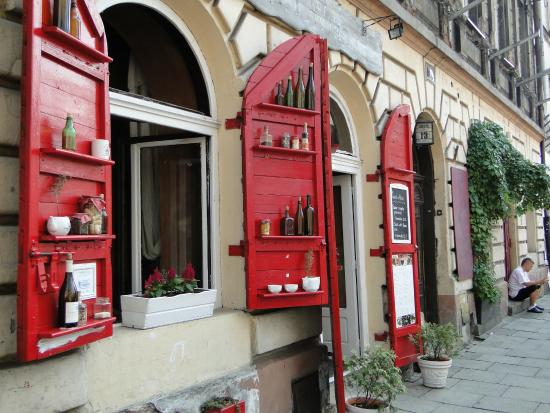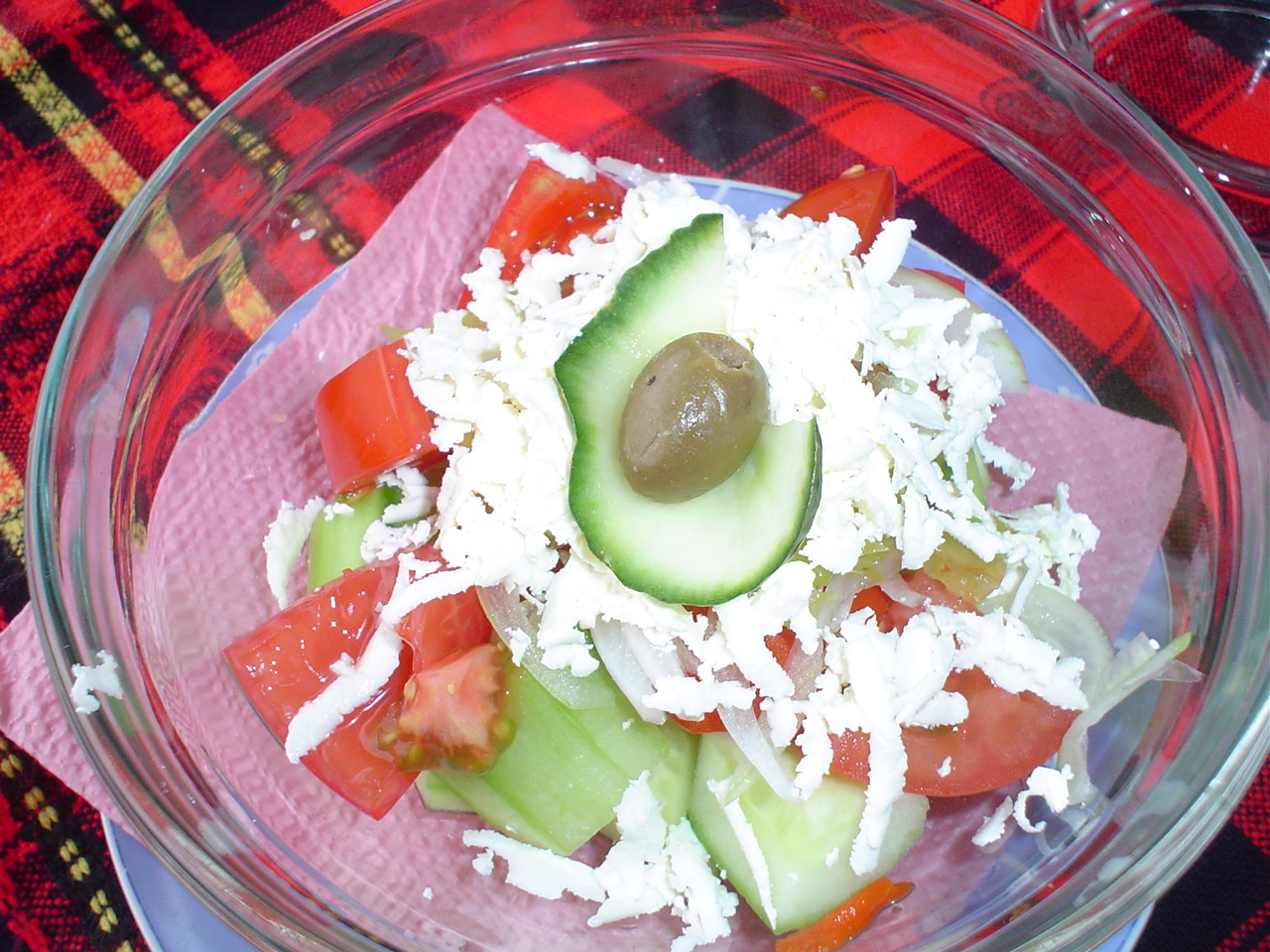 Pierwsze spotkanie z bułgarską kuchnią na ogół dla wszystkich cudzoziemców przebiega dość gładko. Szczególnie gorąco akceptują ją ci, którym nieobce są zasady współczesnej dietetyki. Czyż można bowiem nie akceptować kuchni, której podstawę stanowią różnorodne warzywa, w której jedynym niemal tłuszczem jest lekki i klarowny olej słonecznikowy, i mięsa najczęściej opieka się na ruszcie? A do tego zawsze przecież dużo nabiału — słynny, bardzo wartościowy jogurt i znakomite sery. W tej sytuacji kuchnię bułgarską uznać można bez przesady za kuchnię przyszłości.
Pierwsze spotkanie z bułgarską kuchnią na ogół dla wszystkich cudzoziemców przebiega dość gładko. Szczególnie gorąco akceptują ją ci, którym nieobce są zasady współczesnej dietetyki. Czyż można bowiem nie akceptować kuchni, której podstawę stanowią różnorodne warzywa, w której jedynym niemal tłuszczem jest lekki i klarowny olej słonecznikowy, i mięsa najczęściej opieka się na ruszcie? A do tego zawsze przecież dużo nabiału — słynny, bardzo wartościowy jogurt i znakomite sery. W tej sytuacji kuchnię bułgarską uznać można bez przesady za kuchnię przyszłości.
Są jednak momenty, gdy odwiedzający Bułgarię turyści przeżywają ciężkie chwile w związku z obowiązującym tu modelem żywienia. Można się załamać, gdy po morderczej podróży z Polski zaproszą na śniadanie: zamiast wymarzonej gorącej herbaty oczekuje „kiseło mliako” i kawał ociekającej tłuszczem ,,banicy”. Można też zawahać się na widok „szkembeczorba” — zabielanej mlekiem zupy z flaków, obficie polanej czosnkowym sosem. My natomiast, jak i wielu naszych rodaków, okazałyśmy się zupełnie bezradne wobec „lutej czuszki” — malej, ostrej papryczki. Ten niewinny, zielony strączek cudzoziemcy odsuwają na ogół ostrożnie na brzeg talerza. A przecież w Bułgarii stosuje się czuszkę nawet jako samodzielną zakąskę — „meze” — do rakii, tak zwyczajnie, w kieliszku z wodą, bez żadnych innych dodatków. Niewtajemniczeni postawieni zostają wtedy przed problemem, co w tej kompozycji test dodatkiem neutralizująco-łagodzącym: czy ostra papryczka dla okrutnie mocnej wódki, czy właśnie odwrotnie?
Wydaje się, że jedzenie czuszki stanowi tu wypróbowany test, za pomocą którego zidentyfikować można nieomylnie autentycznego mieszkańca Bałkanów. Jeśli po zjedzeniu tego przysmaku nie straci oddechu, jeśli oczy nie zajdą mu mgłą, to znaczy, że swój, a nie jakiś tam Europejczyk z Północy.
Paląca papryczka traci jednak zupełnie swoje piekielne właściwości, gdy nie jest konsumowana na surowo, lecz stanowi jedynie przyprawę do potraw. Wrzucona w niewielkiej ilości do garnka w czasie gotowania — niezależnie od tego czy jest suszona, czy świeża — nadaje zupom i sosom znakomity, pikantny smak, bez przesadnej jednak ostrości.
Każdy, kto spędził w Bułgarii chociaż krótki urlop, stwierdzić mógł naocznie, że większość potraw opiera się tu na kompozycjach pomidorowych. Jarzyna ta — późno poznana w Europie, a w XV w. uważana za roślinę trującą — długo obok róży zdobiła pańskie ogrody. Potem opanowała kuchnie śródziemnomorskie i bałkańskie. W dowód uznania pomidory zyskały swoiste nazwy, jak brzoskwinie — „owoce życia”, zalecano je jako ,Jabłka miłości” („pommes damour”) lub „rajskie jajka” („Paradieseier”). Nie tylko dla zalet odżywczych pomidory cieszą się taką popularnością. Spożywane na surowo w sałatkach, jako dodatek do wszelkich zup, sosów, mięs, jako konfitury na deser, łatwo przechowują się cały rok w postaci soków, mrożonek, kwaszonek, marynat, koncentratów itd. Ponieważ warzywa te nie budzą żadnych kontrowersji, bez wahania zapraszamy do wypróbowanie potraw kuchni, w której herbie znalazł się pomidor.
Pragniemy również możliwie jak najszerzej omówić jej specyfikę, prowadząc polskich smakoszy przez rodowody żywieniowych tradycji najbardziej dla Bułgarii typowych. Ułatwi to na pewno układ gastronomicznego kalendarza, w Bułgarii bowiem bardziej może niż gdziekolwiek indziej wszystko ma swój czas, a pewne stare, związane z porami roku zwyczaje kulinarne w dalszym ciągu są żywe i aktualne.








